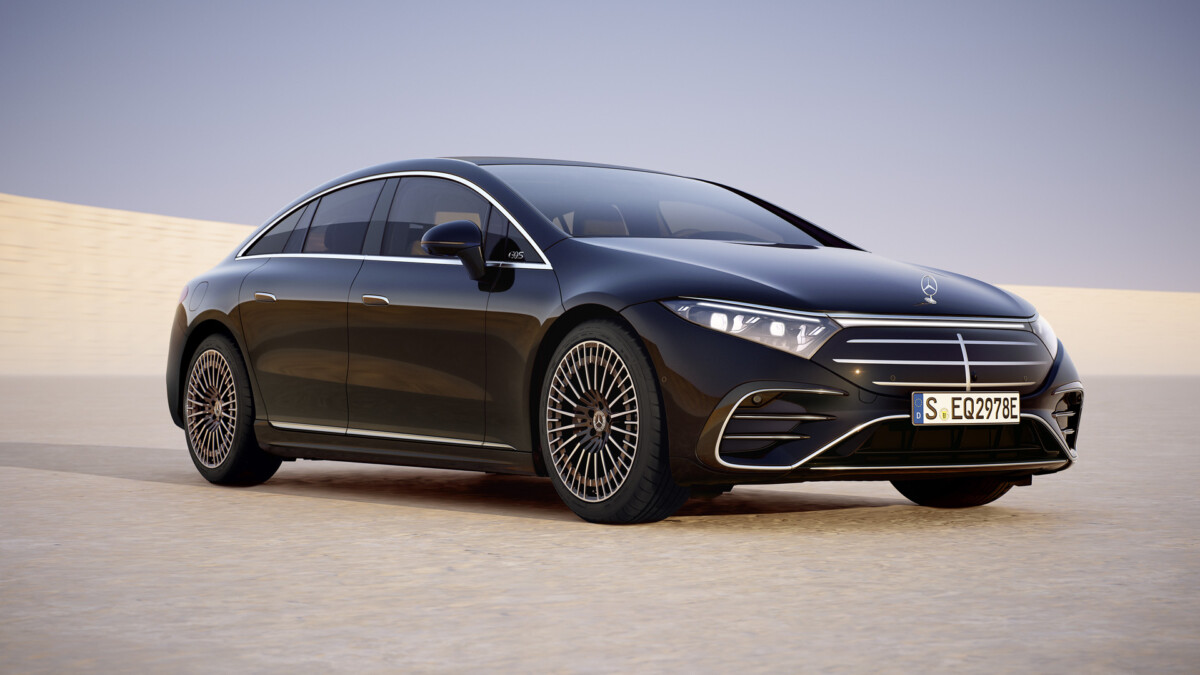Faced with declining profitability and a drop in growth in electric car sales, Mercedes is readjusting its strategy and focusing instead on flexibility. The consequence: the pure and simple abandonment of its future showcase electric platform.
In recent weeks, uncertainty has reigned among manufacturers, particularly regarding the European market. With growth in sales of electric cars not as strong as hoped, several brands are forced to review their plans.
All this is also without taking into account the 2035 deadline and the cessation of sales of new thermal and hybrid cars in Europe, which seems to be called into question more than ever. So, Mercedes recently announced that it may not go all-electric by 2030 as planned, but maybe a little later. The brand says “stay tuned to the market” and would like to offer “what customers want”. Overall, the same story resonates at Renault, Volkswagen and Stellantis.
A new platform that will wait
Currently, Mercedes’ high-end electric cars, namely the EQS sedan and its SUV variant, are based on the EVA2 platform. This platform is far from obsolete and it can carry a large 107.8 kWh battery, guaranteeing 821 km of autonomy on the EQS after the last restyling on the 450+ propulsion version.

The accumulator of the restyled version does not change its volume, chemistry or number of cells, but increases in density. The manufacturer announces an 11% improved autonomy on the highway. The maximum charging power does not change with 200 kW peak and still a 400 volt electrical architecture.
The new platform planned by Mercedes for its high-end models was to increase to 800 volts, which would greatly reduce charging times which could have fallen below 20 minutes, compared to around 30 minutes currently.
Mercedes is reorganizing to regain profitability
But Mercedes will have to do without it, because a spokesperson for the brand confirmed the cessation of development of this new platform, explaining that production will continue on an existing line, but with increased flexibility to integrate different propulsion systems, whether electric or thermal. This approach will allow Mercedes to effectively respond to changing market demands while optimizing costs.
Mercedes initially aimed to create an entirely new production line, specifically designed to assemble electric premium models, such as the electric S-Class and the electric GLE, from 2028.
Fortunately, the entry-level MMA platform which will be embedded in Mercedes’ cheapest electric cars (and in particular the future Mercedes CLA) is still on the agenda and should arrive next year. 800-volt architecture is on the cards, meaning Mercedes’ cheaper cars will charge faster than the more expensive ones.
Be careful though, since according to some rumors, the current EVA2 platform could be updated to go from 400 to 800 volts. Which would cost Mercedes less money than creating a new platform from scratch.
As Mercedes CEO Ola Källenius pointed out, the pace of this transformation must be guided by market conditions and customer preferences. But on condition that it remains profitable, and Mercedes seeks to restore profitabilitywhich saw a decline last year.
Want to find the best Frandroid articles on Google News? You can follow Frandroid on Google News in one click.
